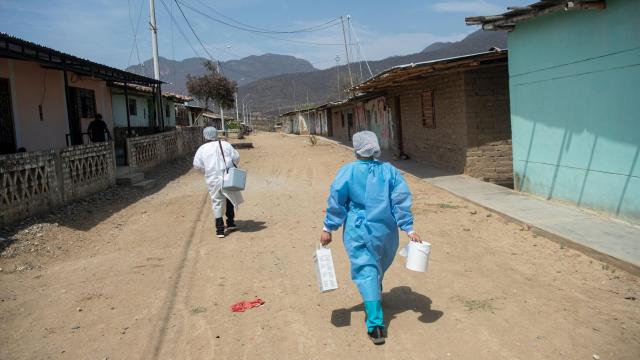A scientist who works on the AstraZeneca vaccine with Oxford University in the UK has come out to defend the decision to sell its COVID-19 vaccine at a profit, according to a new report from the Financial Times. AstraZeneca was previously unique because it sold the COVID-19 vaccine at cost, unlike most other vaccine makers like Pfizer and Moderna, which have always taken a profit.
AstraZeneca is the second-largest COVID-19 vaccine supplier in the world by volume, supplying just over 2 billion doses to date, according to the latest figures from Airfinity. Only China’s Sinovac has delivered more coronavirus vaccines, supplying the world with 2.1 billion doses. Pfizer/BioNtech has delivered 1.96 billion doses, making it third in the world.
AstraZeneca, which developed its vaccine with Oxford University, announced last week it would start to charge more for its vaccine, sometimes taking a profit, though it will still sell the vaccine to low-income nations at cost. The drug company notes that the majority of vaccines it will deliver in the fourth quarter will still be without any markup.
“We can only begin to say the pandemic is actually over once there is really wide, equitable, widespread access to vaccines all around the world. AstraZeneca has done more than any other company to address that,” research scientist Sandy Douglas told the Financial Times.
“They haven’t made the massive profits others have made by focusing sales on the rich world throughout the height of the pandemic,” Douglas continued.
And that’s certainly accurate. U.S.-based Pfizer said its expects to make roughly $US36 (A$49) billion in revenue from its COVID-19 vaccine alone by the end of 2021, according to Business Insider.
While the serious effects of covid-19 can now be largely avoided through vaccination, there are still a large number of cases in both wealthy and poorer nations alike. South Korea, for example, reported 3,292 new COVID-19 cases on Thursday, the highest daily case count since the pandemic began, according to the South Korea Ministry of Health. But the biggest concern is the number of serious cases in a given country that result in admittance to the ICU.
The U.S. is struggling with COVID-19 vaccination rates in large swaths of the country, thanks largely to politicization of the virus. The U.S. is ranked 55th in the world for covid-19 vaccination rates and sinking, thanks largely to Americans on the right who believe vaccines are either harmful or the entire pandemic is a hoax. Roughly 38% of Republicans say they probably or definitely won’t get the COVID-19 vaccine, while just 9% of Democrats say the same thing, according to the latest polling from the Kaiser Family Foundation.
Wealthy countries are now coming to grips with the fact that COVID-19 is unlikely to be eliminated and will become endemic in the next year — one of many diseases that will probably need to be treated with annual vaccinations and treatments that show promise, such as new antivirals developed by Merck and Pfizer. In fact, Pfizer’s experimental antiviral reduced the risk of serious illness and death in 89% of patients when taken within three days of the onset of symptoms.
Let the antivaxxers have their horse paste. The best way to avoid getting seriously sick from COVID-19 is to 1) get vaccinated and 2) get one of the new antivirals if you do contract the disease. Yes, companies like Pfizer and now AstraZeneca are going to be making a profit. But that’s the world we live in now. And even though AstraZeneca is going to start making money from the vaccine, at least it delivered billions of doses at cost for some of the poorest countries on Earth.
“I’d love to see any other company match AstraZeneca’s commitment to affordability and equitable access,” Douglas told the Financial Times. “Frankly, I don’t think any of the people in low-income countries who haven’t had a vaccine yet are bothered about whether or not AstraZeneca is making a modest profit in richer countries.”
And Douglas is probably right about that.
